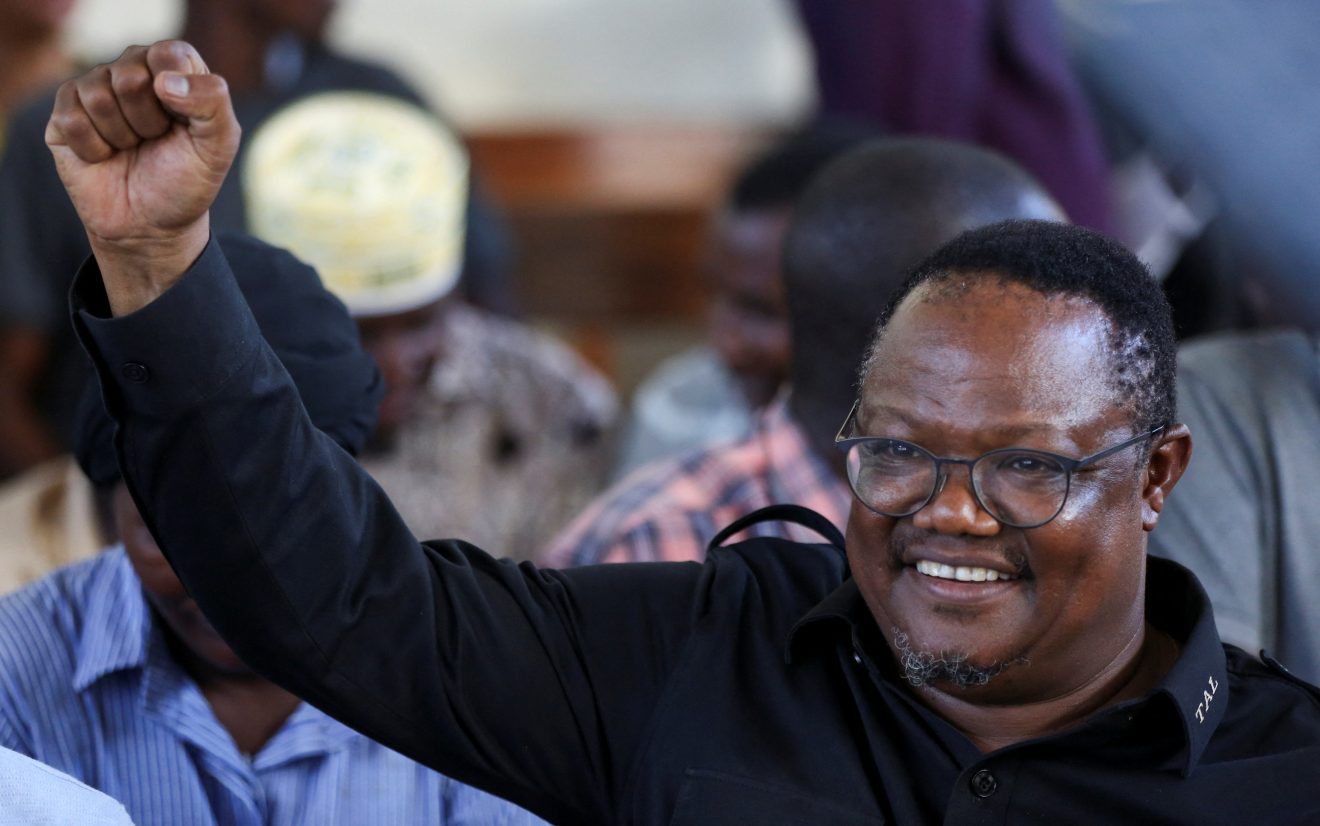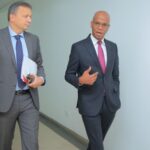Legal tensions flared at the Kisutu Resident Magistrate’s Court on Monday as Tanzanian opposition leader Tundu Lissu appeared for the mention of a case in which he is charged with treason and publishing false information through online platforms.
Lissu, the National Chairman of Chama cha Demokrasia na Maendeleo (CHADEMA), drew the court’s immediate attention upon entering by chanting his party’s political slogan, “No reforms, no election.” This was promptly flagged by the presiding magistrate as a violation of courtroom decorum.
Court observers had anticipated that the matter would be transferred to the High Court of Tanzania, given that Kisutu lacks jurisdiction over treason charges — a capital offense under Tanzanian law. However, state prosecutors requested a further adjournment, stating that their investigations remained incomplete. They also claimed that Lissu’s courtroom slogan could be construed as contemptuous.
The defense team, led by seasoned attorneys Peter Kibatala, Dr. Rugemeleza Nshala, and Mpale Mpoki, strongly opposed the adjournment. They argued that the state had ample time to conclude its investigations and that repeated delays were infringing on their client’s constitutional rights.
They also addressed the courtroom disturbance, noting that Lissu had been brought in at the same moment the magistrate entered, denying him the opportunity to recognize his supporters — a custom in many high-profile political cases in Tanzania.
In a surprising turn, prosecutors raised an objection against Advocate Kibatala, alleging that he had been present during one of the incidents under investigation and therefore could not serve as defense counsel. Kibatala rejected the claim outright, asserting that he had not been summoned as a prosecution witness and that no statute barred his participation in the case.
Also Read; What the BRICS Could Learn from the African Union
Magistrate Cyprian Mkeha called for a short recess to allow both sides to privately resolve the disagreement. When the court reconvened, the prosecution stood by its objection, prompting further legal back-and-forth. Nonetheless, the court proceeded to read out three charges against Lissu — all of which he denied.
Lissu, a former Member of Parliament and prominent lawyer, has been a central figure in Tanzania’s opposition landscape. His return to the country in 2023 after years in exile marked a dramatic chapter in Tanzania’s shifting political climate. He previously survived an assassination attempt in 2017, which drew widespread condemnation from international rights groups.
This latest case has reignited debates about freedom of expression, judicial independence, and the future of democratic governance in Tanzania. Legal analysts argue that the outcome could significantly influence both domestic politics and Tanzania’s reputation on the global stage.
The court has adjourned the matter until June 22, 2025, pending further directions.







